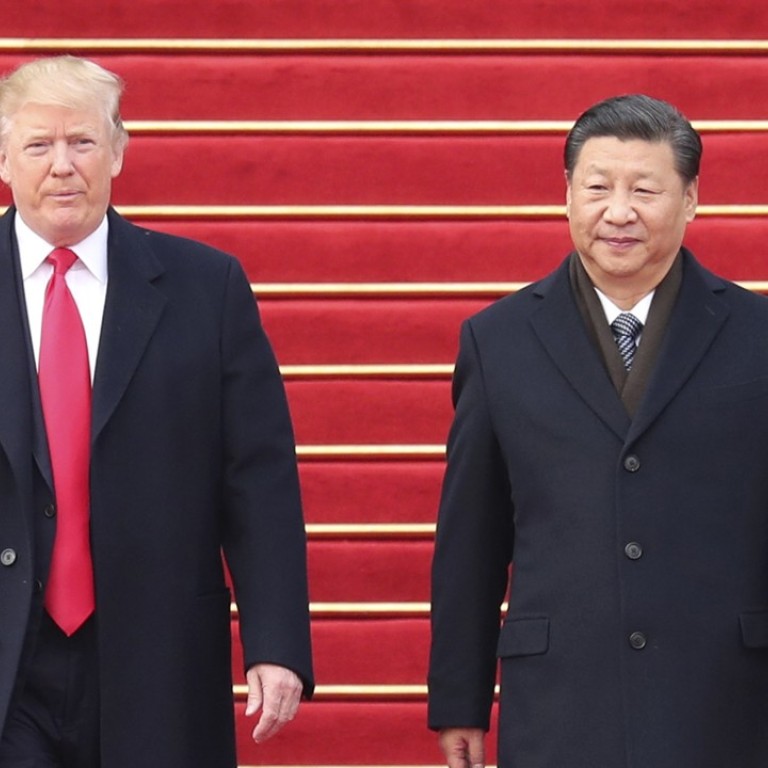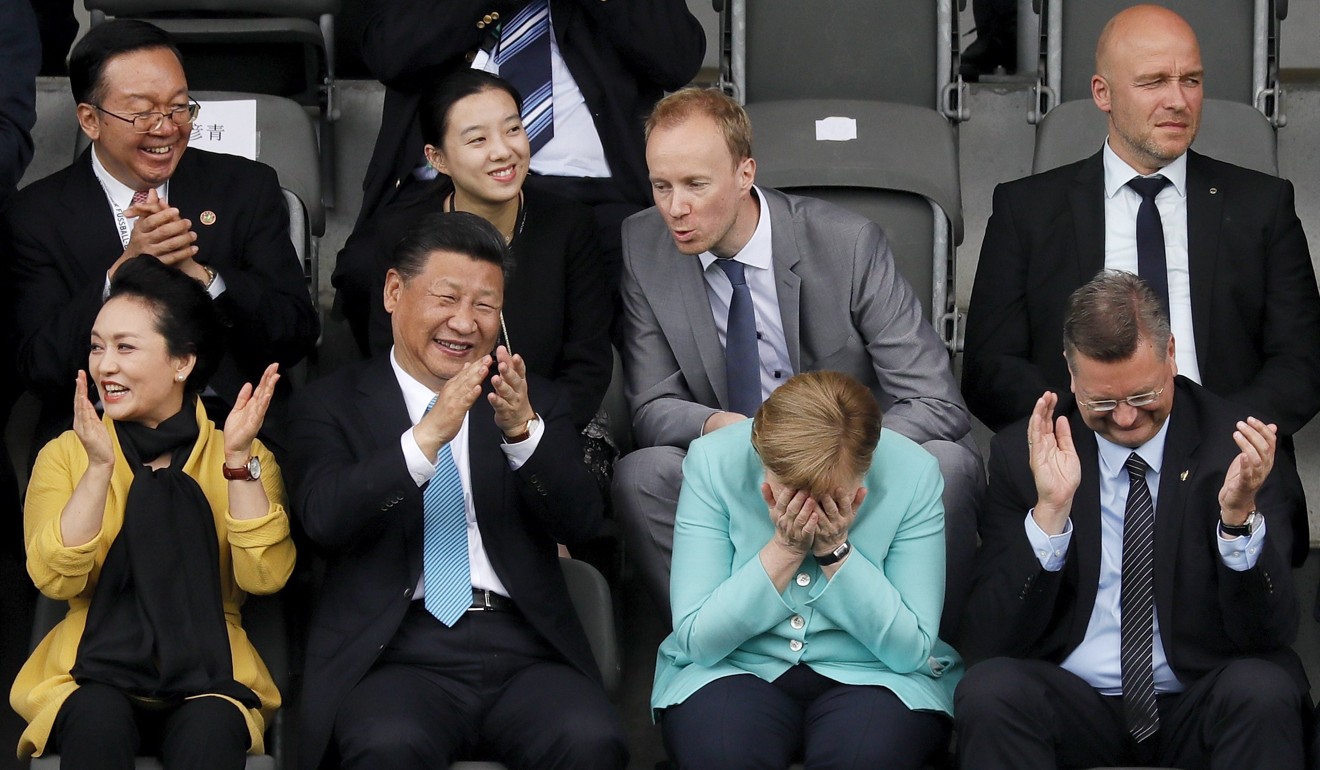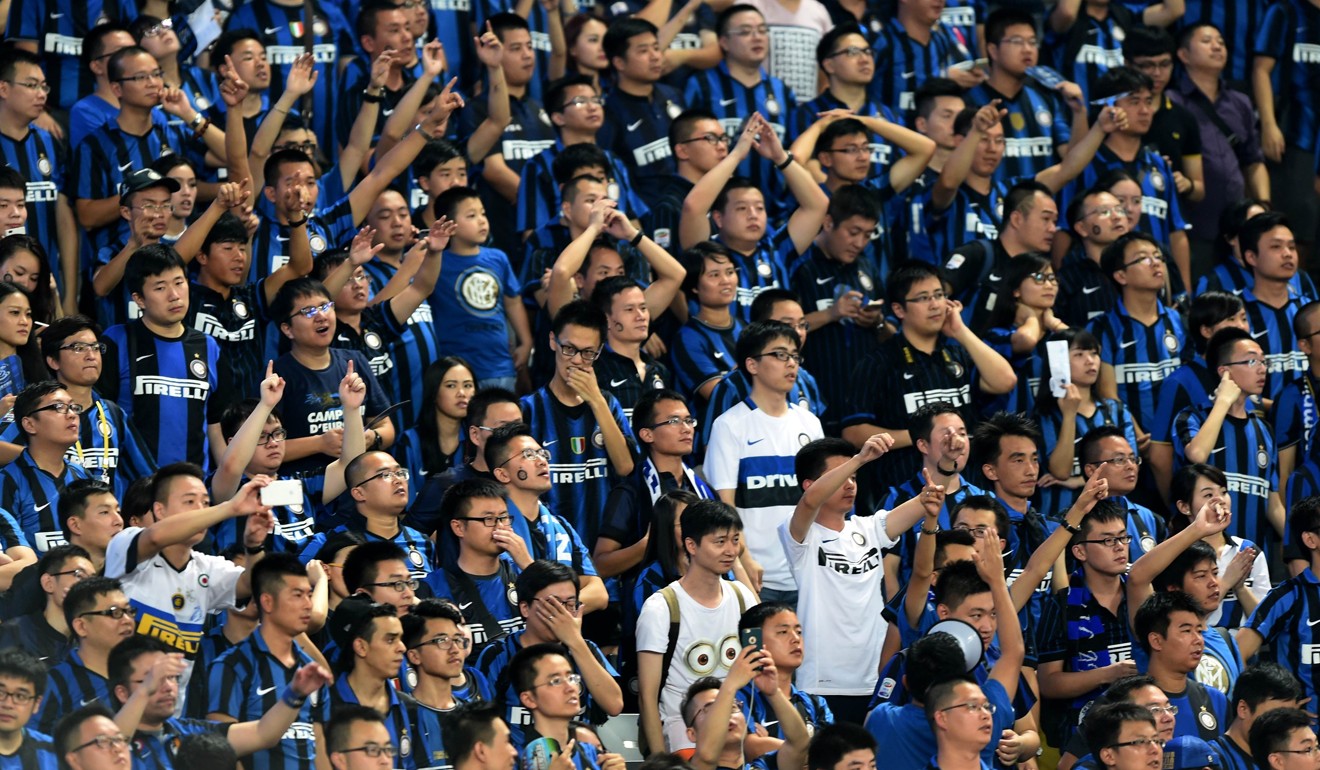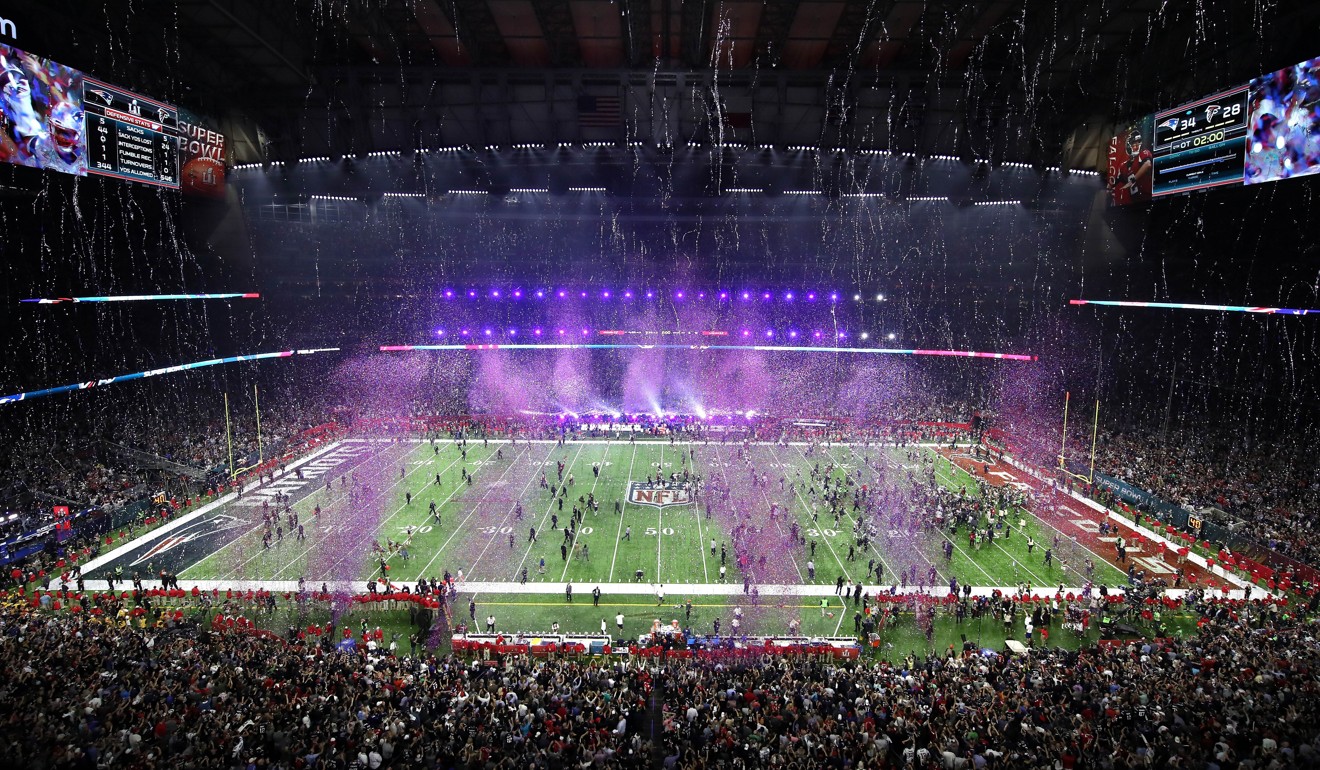
G20: Donald Trump, Xi Jinping should have used Argentina summit to take Copa Libertadores to China or US
- Authorities opted to move final to Madrid fearing a repeat of the trouble between River Plate and Boca Juniors fans
- The second leg was postponed indefinitely when Boca refused to replay 24 hours later
In the film Starship Troopers, Buenos Aires is destroyed by an asteroid but much smaller rocks have damaged the Argentine capital this week. Those thrown by River Plate fans at the Boca Juniors team bus dragged the city into chaos as it prepared to hold two of the biggest events in the world: the Copa Libertadores final and the G20 summit.
Much like the action in the Copa Libertadores was off the pitch, the real action at the G20 summit will take place on the sidelines. Many are hoping US president Donald Trump and his Chinese counterpart Xi Jinping can clear the air in Buenos Aires – not least the list of US sporting organisations eyeing China that want to see a quick end to the ongoing trade war.
Football and politics are not supposed to meet. They’ve made sure that’s the case in the Argentine capital, where authorities finally confirmed the second leg of the final would not take place in the city but rather at Real Madrid’s Santiago Bernabeu in Madrid. And what a missed opportunity for China and the US that represents.
The Copa Libertadores final that never was almost became the one that never would be when Boca unsuccessfully lodged an appeal to be awarded the second leg without having to kick a ball.
Then it was revealed that several cities were vying to host a relocated showdown. Qatar was somewhere near the top of the list.
The hosts of the next World Cup are keen to cement their soft power push through football, something that Qatari-ownership of Paris Saint-Germain is successfully showing at club level. Game or no game, there needed to be a South American representative at the Club World Cup in the UAE when it kicks off on December 12.
But why was the opportunity not explored to take the game to the US or China?

The US knows a little about how to host a sporting event – 16 different cities have held the Super Bowl over the years, while plenty of football-specific stadiums have been developed for Major League Soccer and then there’s the razzmatazz that America excels at.
China would have been a different proposition but the appetite for hosting big games is there and the country is set to bid for a World Cup of its own in the coming years. It might even have found a use for the inert Bird’s Nest in Beijing, which has long stood empty awaiting the visit of globally-famous football teams.
The Chinese Football Association could have stepped in and given the world a lesson in how to keep the crowds at bay.

However, big crowds have been allowed to assemble for visiting sides, not least the 70,000 at the Milan derby for the Supercoppa Italiana in 2011. Demand for big-name sides is huge and a Copa Libertadores final in China would easily have sold out, just as it would have in the US because of its growing football fan base and huge Latino community.
The Bernabeu will no doubt be packed but at four hours ahead of Argentina it can’t kick-off at a good time for those watching in Buenos Aires.
The US ranges from two hours behind Argentine time to more but an afternoon kick-off on the weekend in the States would have been an ideal time for viewers in Argentina. Time difference in China is also favourable, wherever they play – an 8pm kick-off is 9am the same day in Buenos Aires – something that would have no doubt pleased authorities worried about fans clashing.
Both China and the US have been mentioned as possible alternative hosts if for some reason the Qataris hand the World Cup back, but for all the concerns surrounding Qatar’s ability to host the 2022 tournament, World Cups have gone on in more trying circumstances.
Indeed, the 1978 edition in Argentina was held under a military dictatorship. So much for politics and football not mixing.

Fifa has long passed the buck in that regard, not mentioning the Chinese FA flouts their own demand for independence by being part of the state sports administration and rides roughshod over Fifa statute.
Coincidentally, the World Cup is something the US and China are becoming increasingly involved in. Chinese companies increased their presence and investment at the last World Cup while the US are set to co-host in 2026.
The country has certainly changed its tune in recent years. It was only the early ’90s when vice presidential nominee (and former NFL quarterback) Jack Kemp implored congress to stop the US hosting the 1994 World Cup on account of football being a “European socialist sport”.
In contrast, Trump was front and centre of the Together26 joint bid, where the US will host with neighbours Canada and Mexico.
Over in China, Xi’s football dreams are well documented and the country is said to be preparing a World Cup bid of their own.
The sense of an opportunity missed is even more pointed when one considers that Argentine PM Mauricio Macri is a former president of Boca Juniors – as if we needed another reminder of the cosy symbiosis of football and politics.
Never mind the political football, football is political nowadays. Anyone who thinks otherwise can take the advice of the Buenos Aires authorities and get out of town.

